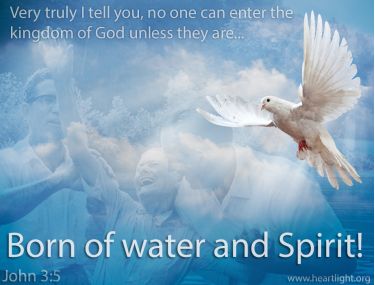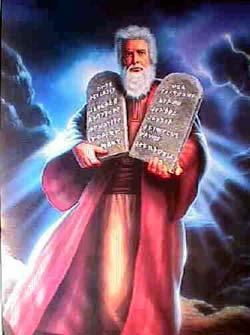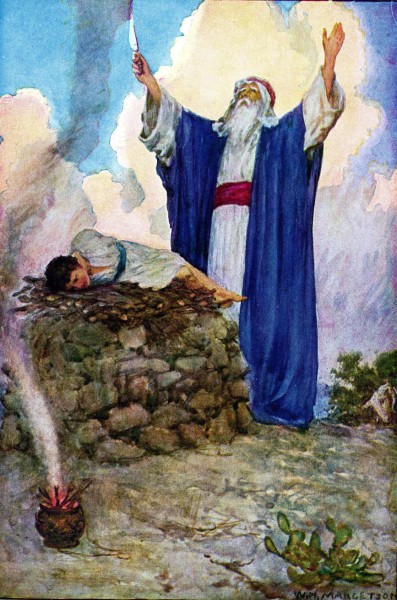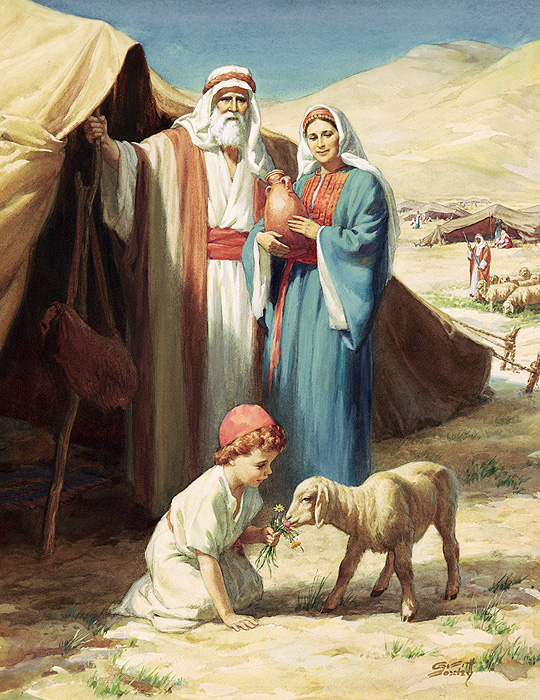THIS VIDEO WILL HELP YOU TODAY, TOMORROW AND FOREVER, TO WATCH CLICK THE ARROW IN THE PICTURE. OR IF YOU PREFER, READ THE ARTICLE
WHO IS THE HOLY SPIRIT?
And What Does He Do For Us?
Do you recall what you learned about the Holy Spirit when you were a kid? Has that knowledge grown, or has it stayed about the same? I have written a previous Bible article about the Holy Spirit but this one takes a significantly different approach. This article/video is presented from a perspective of a kid or new person just learning about the Bible and that of some one who knows nothing and maybe not even wanting to learn. Think for a minute how much you knew about the Holy Spirit when you first read something about Him or heard someone talk about Him for that first time. What were likely some of the questions you had: 1. Is He a being? 2. Does He have a personality? 3. What is His job? What is His connection to God? What does He mean to me? All of these and more are what a kid or a new person wanting to learn about the Bible may begin to seek. But what about all of those people that know nothing about the Holy Spirit and don’t care- who you may want to witness with about Jesus, God, and also the Holy Spirit? This article/video may offer you a good method to provide that witness to that lost person.
The Holy Spirit is one of the 3 most important Bible characters. And yet very little is taught about Him. He’s a little mysterious- but not beyond comprehension. When we typically begin teaching or first talk about Him, we most often deal with the gifts of the Holy Spirit. This look into the Holy Spirit is going to take a different view. We are going to discover His true character and how much He means to us. He is amazing in ways that even kids can understand, and that is true for those who choose to ignore Him. We need to teach all with whom we come in contact that the Holy Spirit is a dear friend and our special helper, even our protector, guide, and comforter. However maybe His greatest role is His direct connection to God and to provide comfort to us.
WHO AND WHAT FORM IS THE HOLY SPIRIT
JOHN 3:8 “The wind blows where it wishes and you hear the sound of it, but do not know where it comes from and where it is going; so is everyone who is born of the Spirit.” In this verse Jesus is comparing the work of the Spirit of God in the new birth to the way the wind moves, and the way the wind causes effects in the world without being seen and without being controlled by us. Here we see that the Holy Spirit is not seen nor from where He comes, but He comes when we are new children of God (born of the Spirit).
Prior to delving into some details of how the Holy Spirit helps us through messes- if we seek His help- let me share some important facts that will help to prepare the basics. First, the Holy Spirit is a spirit, not a person like Jesus. In fact, the Holy Spirit is the spirit of God and Jesus. He allows us to feel and respond to God and Jesus, He is a personal being. Secondly, He is the third member of the Holy Trinity, with God and Jesus. Matthew 28:19 teaches us to be baptized three times each in the names of the Father, Son, and Holy Spirit. The Trinity is three in one. Third, The Holy Spirit does not have a body. There is no Scripture says that the Holy Spirit ever took a human form ever. Fourth, The Holy Spirit was foretold by Jesus to all who believed beginning on the day of Pentecost. However, He was present in many Old Testament circumstances- including the Creation. Remember Genesis’ Scripture said- “and the Spirit of God was hovering over the face of the waters.” Fifth, Paul taught that we receive the Holy Spirit when we accept Jesus into our hearts as Messiah. 1 Corinthians 12:13 “For we were baptized by one Spirit into on body- whether Jews or Greeks,,,” This is baptism one by the blood of Jesus. The Holy Spirit is a gift given with Salvation. Sixth and last thought here, when the Holy Spirit is serving you as the great Comforter (John 14:26) we will feel comforted. However, the Holy Spirit is a gift of grace and not an emotional feeling. The Bible does not instruct us to base our relationship with the Holy Spirit on how or what we feel. Sometimes His presence will be accompanied by feelings- but most often you will just feel like your normal self. This is due to that His gifts belong to Him and we can get other gifts from Him, while not always having the same gifts permanently.
There are some gifts that are non-permanent by their very nature, such as the gifts of marriage and celibacy (1 Corinthians 7:7). For the gifts and the call of God are irrevocable” (Rom 11:29). That the Jews are participants in God’s salvation is theologically unquestionable, but how that can be possible without confessing Christ explicitly, is and remains an unfathomable divine mystery. After a close analysis of the Word we conclude that there are some gifts that are temporary and some that are permanent. Conservative scholars believe that there are 16 spiritual gifts mentioned in the NT. 9 of these are with us today. 7 were phased out during the apostolic age.
1 Corinthians 13:8: “But as for prophecies, they will come to an end; as for tongues, they will cease; as for knowledge, it will come to an end.”
THE HOLY SPIRIT COVERS OUR MESSES
ROMANS 15:13 “Now may the God of hope fill you with all joy and peace in believing, so that you will abound in hope by the power of the Holy Spirit.”
The Holy Spirit is kind of like your smartphone. When we need answers, He can give them to us. The same way we use our phones to connect to others, we can use the Holy Spirit to connect to God and sometimes He gives us answers we need for His Will that we don’t even ask for. I have had that happen many times. I stop and say thanks to the Holy Spirit. Think- that word comes directly from God.
Six Steps Toward Abundant Hope
Let me just say a few things about Romans 15:13. I see six steps in this verse, and they’re each just a couple of minutes. All six of these come out of this verse.
1. The God of Hope
May the God of hope fill you with all joy and peace . . .
Everything begins with God. If there’s no God, there’s no hope. So, we start with God.
2. The Word of God
In believing what? All the promises of God that are “yes” in Christ Jesus. Believe those. So, by implication, the second step is that God has spoken. Listen!!
3. The Spirit of God
By the power of the Holy Spirit, you may abound in hope.
If you, right now, are hoping more in God than in money, pension, family, or health, you didn’t create that hope; the Holy Spirit did because it’s a miracle.
God moves in the heart, whether it is 6, 16, or 26, and he does the miracle called the new birth. The new birth is the opening of the eyes to see that Word that’s been spoken to you all along as being real, beautiful, true, satisfying, and glorious. That’s what the Holy Spirit has to do in order for there to be joy and peace.
4. Faith in God
Here’s the key question, practically, for us. Some of you are going to live another year, and some might live 30 or 40 more years. During those days, what will connect the Holy Spirit in his power with joy and peace in your heart? What’s the connection? The answer is in that phrase right there: in believing. It says: “May the God of hope fill you with all joy and peace in believing, so that by the power of the Holy Spirit you may abound in hope. “What a glorious thing that in believing, by the power of the Holy Spirit, we can enjoy peace and joy. So, collect your promises, believe them, and through that, the Holy Spirit gives you joy and peace.
5. Joy and Peace
May the God of hope fill you with all joy and peace in believing . . .
Rejoice in the Lord always; again, I will say, rejoice (double joy). Let your reasonableness be known to everyone. The Lord is at hand; do not be anxious about anything, but in everything by prayer and supplication with thanksgiving let your requests be made known to God. And the peace of God . . . (Philippians 4:4–7). There you have joy and peace together.
Joy and peace in believing seem to be why Marlys loved these especially. That’s warfare for all of us. Some people have personalities that are chipper, and others of us are less chipper, and we have to work harder. We have to fight for joy and peace.
6. Abundant Hope
Step six is a surprise. You can see it at the end: “May the God of hope fill you with all joy and peace in believing, so that by the power of the Holy Spirit you may abound in hope.”
What’s the surprise?” The surprise is this: I don’t think in terms of joy and peace yielding hope; I think of it the other way around. In fact, it’s essentially true the other way around. Think back on your conversation and your growth as a Christian. You’re not going to have any joy and peace without hope. If you’re a hopeless person, where would joy and peace come from? So, this is a surprising ending for me.
Jesus said: “In this world, you will have problems.” “Be of good cheer, I have overcome the world.” He overcame through the release of the Holy Spirit just after He ascended to heaven. Write down your problems and give them to God, who really wants to help us become bigger and stronger. The Holy Spirit covers our problems with grace and peace. The Holy Spirit can give us power over our problems. He can put solutions in our head, as I said He has done for me. The Holy Spirit can prevent us from worrying and fill our hearts with peace. He can give us the peace that passes all understanding. He can infuse or fill us with mercy, hope, forgiveness, and all good things. The Holy Spirit puts a layer of God’s peace between us and our problems so that we are not affected in negative ways. Remember Matthew 3:16 “As soon as Jesus was baptized, He went up out of the water. A that moment heaven was opened, and He saw the Spirit of God descending like a dove and alighting on Him.” The dove was a symbol of the Holy Spirit and the Spirit performed the third baptism for Jesus. You may say that is only His second baptism, but His first was when He was born of the blood from God. Just as the Trinity is God, Jesus and the Holy Spirit, Baptism is the blood, the water, and the Spirit.
THE HOLY SPIRIT CLEANS OUR HEARTS
Hebrews 10:19-22
19 Therefore, brothers and sisters, since we have confidence to enter the holy place by the blood of Jesus, 20 by a new and living way which He inaugurated for us through the veil, that is, through His flesh, 21 and since we have a great priest over the house of God, 22 let’s approach God with a [a]sincere heart in full assurance of faith, having our hearts sprinkled clean from an evil conscience and our bodies washed with pure water.
What does having our hearts sprinkled mean?
The believer is free from the guilt of his sins because Christ paid the penalty for them. The condition of the Christian’s heart is free from a bad conscience. The conscience can move from being defiled (Ti 1:15), to evil (here), and then to seared (1 Ti 4:2). let us draw near to God with a sincere heart and with the full assurance that faith brings, having our hearts sprinkled to cleanse us from a guilty conscience and having our bodies washed with pure water. Does the Holy Spirit control your conscience?
The Spirit reveals God’s truth, and God’s truth renews our conscience. As the Spirit educates the believer’s conscience with the things of God, the personal standard formed by the conscience begins to align with the standard of revealed truth. During our times of communion with the Lord, we will rarely hear an audible voice when the Holy Spirit “speaks” to us. What we will sense is a strong leading to do something. Or we might feel strongly about going in a certain direction. The Holy Spirit wants to show us God’s plans and purposes for our lives. How do you know if the Holy Spirit is telling you to do something?’ Holy Spirit prompts you to take action. You will feel prompted to act. There is nothing you can do to stop yourself from taking action in what you are feeling led to do. This is how you know for sure that this is from Holy Spirit and Holy Spirit is speaking to you. “Sometimes the Holy Ghost will warn you of danger, almost like a whistle in your mind.” His still, small voice will prompt you so you will be protected spiritually and physically.” How do you feel when the Holy Spirit is in you? For many people, feeling the Holy Spirit for the first time can feel like intense peace and love. It can also feel like a sense of inner knowing or understanding or being surrounded by light and a holy presence.
Is there an unforgivable sin in the Bible? In Mark 3:29 Jesus says that “whoever blasphemes against the Holy Spirit will never be forgiven; they are guilty of an eternal sin.” Matthew’s account adds that even blasphemy against the Son of Man will be forgiven, but not blasphemy against the Holy Spirit (Matthew 12:31–32). The person who repeatedly and without repentance rejects the Holy Spirit’s testimony to Christ is the one who has blasphemed the Holy Spirit. This is not going to happen with the Holy Spirit in our heart, as He will clean the heart. According to John 16:13 – “13 But when he, the Spirit of truth, comes, he will guide you into all the truth. He will not speak on his own; he will speak only what he hears, and he will tell you what is yet to come.” This tells us that when we have the Holy Spirit, we have some amazing help. He can see the future. He can help us with our choices. We can trust the Holy Spirit to lead and guide us into all truth and into the right choices for the rest of our lives, because He can cleanse our hearts.
CONCLUSION
The Holy Spirit is a guide for us. God can see the big picture and we can’t. If we trust the Holy Spirit to lead us, we will have a better shot at getting things right. Even if it looks like a jumbled mess when we first try, eventually we get used to listening and following – and the pictures become more clear. The Holy Spirit is like a map that will take us to the will of God and Jesus. If we follow the plan that’s laid out in the Bible and listen to the Holy Spirit when He speaks to your heart, you will find yourself walking with Jesus every day!!





